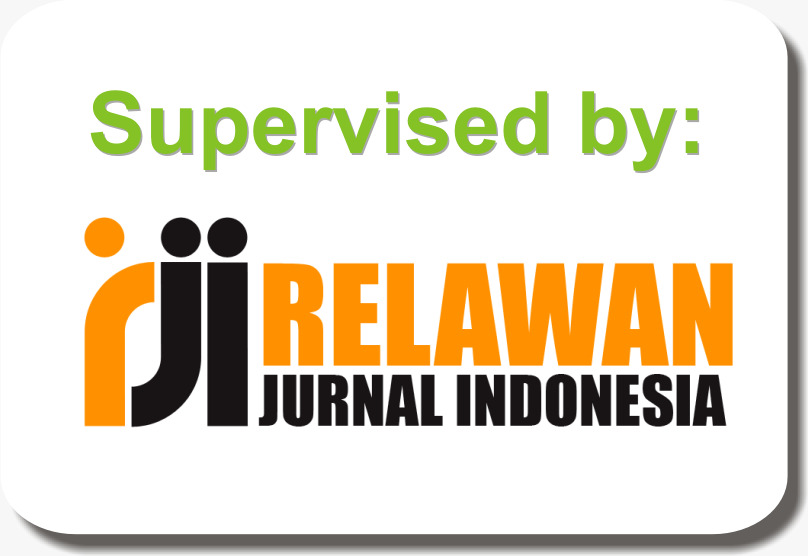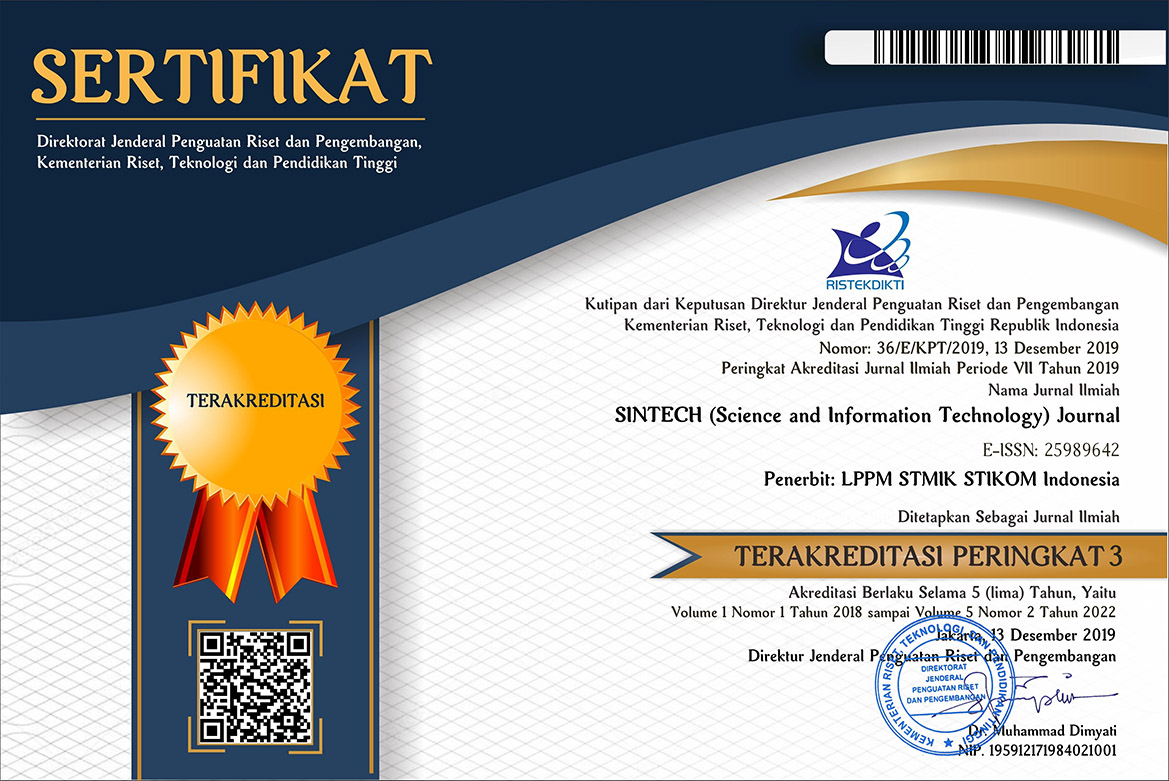CASE-BASED REASONING PEMBERIAN REKOMENDASI PROFESI BERDASARKAN MINAT DAN BAKAT SISWA MENGGUNAKAN SIMPLE MATCHING COEFFICIENT SIMILARITY
DOI:
https://doi.org/10.31598/sintechjournal.v3i1.505Keywords:
Case-based Reasoning, Interest, Talent, Simple Matching CoefficientAbstract
One of the applications of technology in psychology is a system for determination of interest and talent systems. The system of determining interests and talents in this case can be applied in determining professional recommendations based on the interests and talents of a high school student who will continue to lectures or jobs in accordance with their fields. A person's interests and talents can be known from habits, preferences and hobbies. The Case-based Reasoning system created in this study uses cases from respondents which is collected using a questionnaire containing some questions about a person's interest in. To match new cases with old cases stored on a case basis, the authors use the Simple Matching Coefficient similarity method. The system will recommend a suitable work after the user inputs his preferences and habits. based on the results of the tests conducted, it was found that the system had produced the same calculation between the values generated by the system and manual calculations. While based on testing that conducted on data test, it was found that the system was able to provide an accuracy value of 83.33%.
References
Hardianto, R., & Kusuma, C. (2019). Rancang Bangun Sistem Pakar Penentuan Kepribadian. Jurnal Sistem Komputer Dan Informatika (JSON).
https://doi.org/10.30865/json.v1i1.1385
Juliani, I., Putri, T. A., & Rahman, A. (2013). Emergenetics Dengan Menggunakan Metode Case Based Reasoning Dan Algoritma Nearest. 10.
Nur, A., Asahar, J., & I Wayan, D. (2017). Implementasi Metode Case Based Reasoning ( CBR ) Dalam Menentukan Klasifikasi Anak Yang Mengalami Reterdasi Mental. Rekursif, 5(1), 33–42.
Nurul Putri Utami, Hasanul Fahmi, & Anita Sindar. (2019). SPK Penentuan Pemberian Pinjaman Kepada Anggota Bumdes Dengan Metode Simple Additive Weighting. SINTECH (Science and Information Technology) Journal.
https://doi.org/10.31598/sintechjournal.v2i2.317
Pal, S. K., & Shiu, S. C. K. (2004). Foundations of Soft Case-Based Reasoning. In Foundations of Soft Case-Based Reasoning.
https://doi.org/10.1002/0471644676
Prasetyo, A., Kusrini, & Arief, M. R. (2019). Penerapan Algoritma K Nearest Neighbor untuk Rekomendasi Minat Konsentrasi di Program Studi Teknik Informatika Universtias PGRI Yogyakarta. Informasi Interaktif.
Reny Retnowati, A. P. (2013). Implementasi Case Base Reasoning Pada Sistem Pakar Dalam Menentukan Jenis Gangguan Kejiwaan. 1(1), 69–78.
https://doi.org/10.12928/jstie.v1i1.2506
Rozaq, A. (2018). Case Base Reasoning Untuk Menentukan Kebutuhan Bahan Bangunan Rumah. SINTECH (Science and Information Technology) Journal.
https://doi.org/10.31598/sintechjournal.v1i2.224
Tursina. (2014). Case Base Reasoning Untuk Menentukan Daerah Menentukan Daerah Berpotensi Demam Berdarah ( Studi Kasus Kota Pontianak ). Sembistek, 534–543.
Yulianti, W. (2016). Aptitude Testing Berbasis Case-Based Reasoning Dalam Sistem Pakar Untuk Menentukan Minat Dan Bakat Siswa Sekolah Dasar. Rabit : Jurnal Teknologi Dan Sistem Informasi Univrab. https://doi.org/10.36341/rabit.v1i2.28











1.png)




